IN ENGLISH
MONTENEGRO DENIES REFUGE TO LUKASHENKO CRITIC: Montenegrin Ministry of Interior claims that Belarus is a Democracy
Objavljeno prije
2 godinena
Objavio:
Monitor online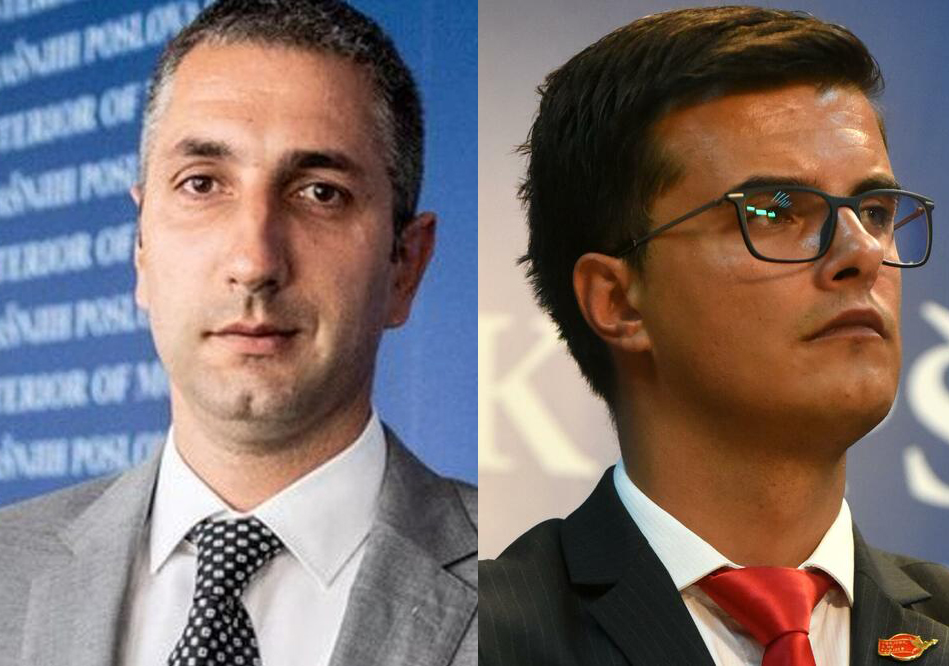
Based on the Ministry of Interior’s decision signed by Radovan Popovic, deputy minister and head of the Directorate for Administrative Affairs, Citizenship and Foreigners, it appears that Belarus is a democratic country where life is safe and full of opportunities. Popovic in his decision UP I-132/23-6651/3 dated 5 June 2024, has rejected the request for international protection filed by V.I (citizen of Belarus) because “there is no justified fear of persecution” in his home country
The High Court in Belgrade recently ruled again that Andrei Gnyot, a Belarusian film director, journalist and opposition activist, should be extradited to the totalitarian regime in Minsk based on the Interpol warrant issued by Belarus. He was arrested at the Belgrade airport on 30 October last year where he flew from Thailand. He was immediately taken into extradition custody to the Central Prison (CZ) in Belgrade. He left Belarus in June 2021 upon learning that Aleksandar Lukashenko‘s notorious KGB secret service was ready to go after him for his ties to the opposition. Gnyot is formally wanted for tax evasion amounting to around 300 thousand euros. He never received a hearing summon on the tax evasion accusations in the country. He allegedly committed tax evasion between 2012 and 2018 even though the law that regulates the matter was passed only in 2019. Gnyot rejected those accusations as “politically motivated”. He is one of the founders of the Free Association of Sportsmen of Belarus (FASB), which was set up after the rigged presidential elections in the summer of 2020, which caused massive civic protests and subsequent bloody repression by the regime whose closest ally is Putin’s Russia. FASB led an international campaign which resulted in disqualifying Belarus as the World Hockey Championship host. Moreover, the International Olympic Committee (IOC) has suspended the financing of the Belarusian National Olympic Committee (BNOC) chaired by President Lukashenko himself of which the Monitor already wrote about. The dictator took revenge on FASB by declaring it an “extremist organization”. The association’s lawyer, Aleksandar Danilevitch, was sentenced to ten years in prison. Retaliation followed against other members of the association, except Gnyot who managed to escape.
In the first judgment (7 December 2023), the High Court panel decided in favour of Gnyot’s extradition. Shockingly, the panel of judges even made a precedent by refusing to hear Gnyot about the charges against him. In early March of this year, the Court of Appeal overturned the decision and sent it back for a new decision. However, on 13 June, the first instance court pronounced the same verdict. The journalist has already announced he would appeal the decision. The only good news for Gnyot is that his prison detention of seven months was commuted to house arrest and confinement in a 20-square-meter studio apartment in Belgrade. International and local human rights organizations condemned the verdict and called on the authorities of Serbian President Aleksandar Vucic to end the persecution of political opponents of Minsk and Moscow who have sought refuge in Serbia.
When it comes to Montenegro, one would expect a better situation for asylum seekers, especially after the fall of the 30-year autocratic government of Milo Djukanovic and his Democratic Party of Socialists (DPS) whose role models were Vladimir Putin and Lukashenko. However, Belarusian national V.I. (who asked not to have his full name disclosed) thought so. However, the Ministry of Interior (MUP) proved him wrong. Radovan Popovic, the deputy interior minister and head of the Directorate for Administrative Affairs, Citizenship and Foreigners, considers Belarus a democratic country where life is safe and full of opportunities. The MUP decision has no mention of the ongoing war against Ukraine in which Belarus indirectly joined Putin by putting at his disposal its military bases, weapons, logistics and territory which served as a springboard for early drive on Kyiv. Popovic in his decision UP I-132/23-6651/3 dated 5 June 2024, rejects the request for international protection to the Belarusian citizen because “there is no justified fear of persecution” in the home country.
V.I., whose family already lawfully resides in Montenegro and runs a successful private business, requested protection upon his arrival in Montenegro on 27 July 2023 because of a threat that Lukashenko’s authorities would imprison him for political activism. Namely, after the disputed presidential elections in the summer of 2020, large protests broke out in the country. The wife of V.I. participated while he stayed aside fearing for the wellbeing of his private construction company. However, when the authorities began to violently break up the protests, V.I “couldn’t stay on the side-lines”. In August 2020 he “recorded a 20-minute video post on YouTube” in which he “publicly announced his position… and supported those who are fighting for free Belarus” and “victory of democracy”. He said that “Lukashenko suppressed the protests by shedding blood” and that “the people should reciprocate in the same way”. After a while, in the spring of 2023, his YouTube post was noticed by the authorities and then V.I.’s problems began. Tax inspections and state controls of his company became frequent for no other apparent reason. Moreover, the bank with which he cooperated for over 10 years suddenly denied him access to loans without explanation. After that, a friend in the KGB told him that the secret service found out about his YouTube video and that the problems with the company were not accidental. In July 2023, he received a phone call from the state security which asked him to come to the premises of the KGB. When asked why, he was told that he would find out upon arrival. He immediately bought a ticket to Istanbul and fled to Montenegro via Turkey, leaving his mobile phone with a SIM card in Minsk in case state security tracked his movements through mobile network towers. Later, he learned from a neighbour in Minsk that Lukashenko’s police came to his house to look for him. Then the police contacted his wife and asked about his whereabouts. She replied that they were not together and that he had left for Russia. V.I. is convinced that if he were to return to Belarus “he would find himself in prison” seeing how the authorities treat other entrepreneurs who expressed their views. The available reports of international organisations and western governments (UN, State Department, EU, HRW, Amnesty Int. etc.) contain many well documented cases of torture in Lukashenko’s prisons. The regime’s common practice is to charge dissenters with treason or rather with bribery/corruption so to be more convincing to the public, both domestic and foreign. Detainees are then forced to “confess their crimes” in front of cameras, as was the case of Roman Protasevitch, a journalist and an opposition activist. He “publicly repented” in front of Lukashenko’s television cameras after he was kidnapped from a Ryanair plane. Namely, Protasevich was on the Athens-Vilnius 4978 flight which he was diverted on 23 May 2021 by the Belarusian authorities under the pretext that a bomb had been placed on the plane. Escorted by a MIG-29 interceptor, the plane was forced to emergency landing in Minsk. The journalist and his Russian girlfriend were snatched away and arrested whereas no reported bomb was found on the plane.
However, all these examples of Protasevitch, Gnyot and over 1,400 political prisoners in Lukashenko’s fiefdom were not convincing enough to Popovic, a close associate of the Interior Minister Danilo Saranovic (a high official of the Democrats of Montenegro) since they “do not meet the requirements of Article 3” of the Asylum Law. Neither the fear of V.I. of what might happen to him if he returns home “prevailed enough” to grant him international protection because “there was no element of persecution”. He is also reproached for not seeking asylum in the first transit country, Turkey, which received 3.5 million refugees from Syria, probably on purpose, overlooking that the applicant’s family already lived in Montenegro with a lawful residence and a successful family business. He wouldn’t be a financial liability to the state if he were allowed to stay with his family in the country of refuge.
Popovic claims in the decision he signed, that in accordance with the Geneva Convention and the Directive on Asylum Procedures, “a country is considered safe when, within the framework of its democratic system, there is generally and permanently no persecution, no torture or inhumane treatment…threats of violence”. Nonetheless “even though, to a certain extent, there are violations of human rights in Belarus”, the MUP finds out that V.I. “can return unhindered to the country of origin, and that his life, freedom and security would not be endangered by his return”. Popovic further elaborates that Belarus is an “industrially developed country” and that its main trade partner is Russia, stressing that natural gas largely transits from Russia to the EU (through Belarus). Popovic praises the construction of the Nord Stream 2 pipeline… from Russia to Germany under the Baltic Sea which was completed in 2021 and “is a factor that has a direct impact on the Belarusian economy”. Popovic apparently forgets that Nord Stream 2 has been closed and partly blown up after the beginning of invasion of Ukraine. He doesn’t bother to explain what the gas pipeline has to do with fate of V.I. if he would return home. Popovic also praises Belarus for receiving 2,915 refugees under the mandate of the UNHCR, 143 asylum seekers and over 6 thousand stateless persons. It highlights the successes of the Lukashenko regime in the fight against human trafficking and commends Belarus for being one of the 152 countries that voted for the adoption of the Global Security Agreement. Therefore “in accordance with the above, this institution has concluded that the conditions set forth to constitute persecution in the sense of Article 1A of the Geneva Convention have not been met”. Furthermore, the statement of V.I. makes it “clear that he did not experience persecution given that his allegations are not that egregious” to constitute a serious violation of human rights. It appears that it would be better for V.I. that he first experienced torture in prison as that might convince Popovic (who is also a lecturer at the Police Academy in Danilovgrad) that he was is in danger.
The leader of the Belarusian opposition Sviatlana Tsikhanouskaya, has been informed about the Montenegrin MUP’s reasoning and denial of asylum. She herself had to flee the country after the Minsk regime refused to recognize her victory in the presidential elections in 2020. Her husband was already in prison before the elections. She was sentenced in absentia to 15 years in prison by Lukashenko’s court. Many democratic governments recognize her as the country’s legitimate leader. Her staff told the Monitor that the opposition in exile had proposed to President Jakov Milatovic and Prime Minister Milojko Spajic to meet with Tsikhanouskaya several times after she had previously met with the governments of Greece and Albania. No response ever came from Montenegro.
Fortunately for V.I. he can appeal Radovan Popovic’s decision before the Administrative Court of Montenegro. V.I. still hopes that he will not have to face the democracy and justice of Lukashenko’s government.
Jovo MARTINOVIĆ
Komentari
IZDVOJENO
-
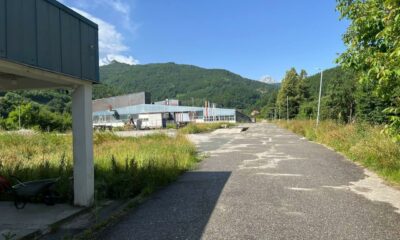

ANDRIJEVICA, ZATVORENA PRVA FABRIKA PELETA U DRŽAVI: Tajkunska misija privedena kraju?
-
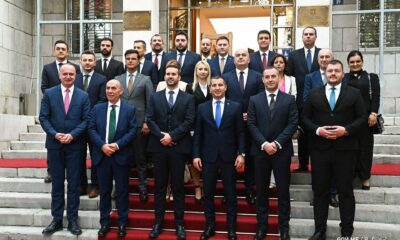

UPRAVLJANJE DRŽAVNOM IMOVINOM: Zašto je Vlada naumila da razvlasti parlament
-
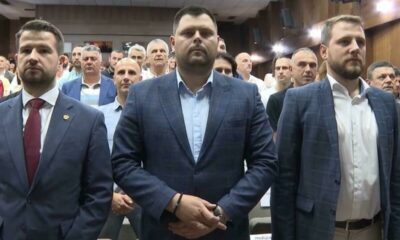

SLUČAJ MARKA KOVAČEVIĆA: Kontinuitet govora mržnje
-
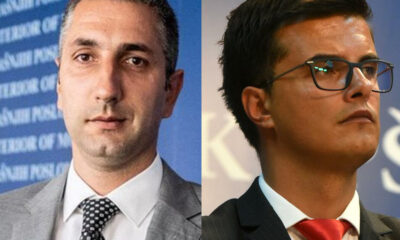

NI U CRNOJ GORI NEMA MJESTA ZA LUKAŠENKOVE KRITIČARE: Za naš MUP Bjelorusija je demokratska država
-
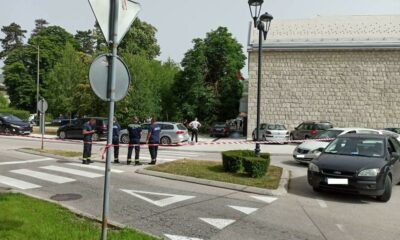

EKSPLOZIJA NA CETINJU: Rat koji nije stao
-


MIORAG VUJOVIĆ, ORGANIZACIJA KOD: Stvaraju se preduslovi za raspodjelu nacionalnih resursa
IN ENGLISH
GRENELL’S (UN)OFFICIAL VISIT TO WESTERN BALKANS: Backroom Deals in Montenegro Again
Objavljeno prije
6 mjesecina
18 Augusta, 2025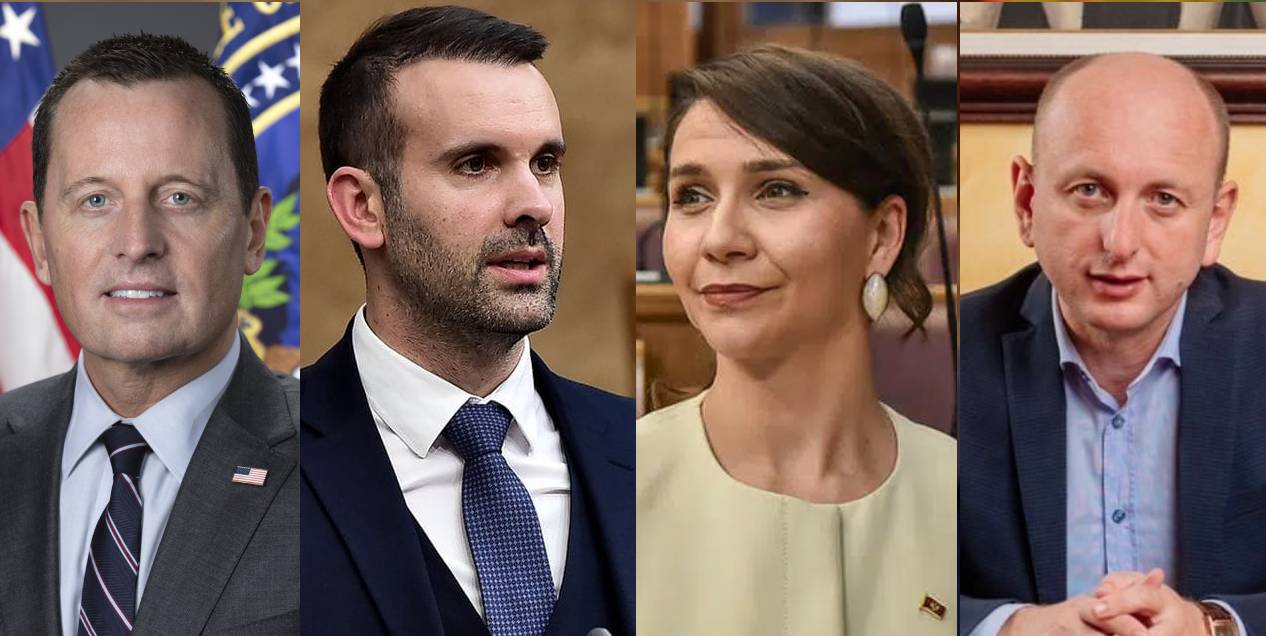
Richard Grenell, former U.S. envoy for the Serbia–Kosovo dialogue and once a powerful figure in Donald Trump’s first administration, reappeared in the Balkans this August on what was labeled an “unofficial visit.” His meetings and media appearances, however, looked suspiciously like an improvised diplomatic tour. Still, regional interlocutors who interacted with Grenell during his visit say that his vocabulary and tone sounded like that of an envoy on official mission, though he never formally claimed such a role. He even hinted, indirectly, that next year he would be back in a far more powerful position — effectively pitching himself
Last Thursday afternoon, Antena M reported that Milorad Dodik, the recently convicted president of Republika Srpska (RS), met with U.S. special presidential envoy Richard Grenell at the One and Only hotel in Portonovi, Montenegro. While authorities in Banja Luka did not confirm the meeting, it was notable that a rally organised by Dodik’s party (the Independent Social Democrats), originally planned as a protest related to his court verdict, was abruptly canceled. Antena M further reported that an unnamed Republican congresswoman was present at the meeting. No Montenegrin officials were involved or played any role in organising the encounter at the resort near the city of Herbage Novi.
However, Monitor received information, which could not be independently verified, suggesting that Grenell also met with Montenegro’s Prime Minister Milojko Spajic and Minister Majda Adzovic on the same day. Allegedly, discussions were uncomfortable and centred around recent turbulence related to airport concession deals in Montenegro. Officials close to the prime minister denied that any such meeting took place, while Minister Adzovic did not answer inquiries.
Earlier, on July 19, Nik Gjeljoshaj who simultaneously serves as Deputy Prime Minister, Economic Development Minister, and chair of the commission overseeing airport concessions informed the public that he had met with Grenell in Washington. In a statement from the U.S., he expressed gratitude to Grenell as “a great friend of the Balkan countries,” and requested support for the country’s accession toward European Union and stronger ties with the United States. During his U.S. visit, Gjeljoshaj claimed to have met in an official capacity with the FBI Director and his “senior leadership team.” Discussions were said to revolve around “the essential importance of upholding the rule of law to attract investments from Western countries and the U.S.” However, the Government publicly denied sending him and said that Gjeloshaj traveled to the U.S. privately. The Deputy PM did not provide any photographic evidence of these meetings. Before his trip, Mr Gjeloshaj was visibly dissatisfied with the tender outcome and the failure of the U.S.–Luxembourg bidder for the airport concessions that he was in favour of.
The day after the Portonovi meeting with Dodik, borba.me reported that on the evening of August 8 “in one Montenegrin coastal town”, Milan Knezevic, the leader of the Democratic People’s Party (DNP) met with Grenell. The meeting reportedly lasted nearly two hours, marked by open dialogue and exchange of of views.
The portal, considered an informal outlet of the pro-Serbia and pro-Russia “For the Future of Montenegro” (ZBCG) coalition, reported that Knezevic “detailed to Grenell the current political situation” – including internal relations in the government and various security, economic and international challenges. The interlocutors agreed “to continue communication and exchange of experiences,” with a prospect of a follow-up meeting in the future .
After departing Montenegro, Grenell continued on to Croatia. He shared on Instagram a photo of him posing with friends in the old town of Dubrovnik. The same day the Kosovar portal Gazeta Express reported that during his stay in the Western Balkans, Grenell met with Shkëlqim Devolli, a shareholder of the prestigious Devolli Corporation, founded by his father Ibrahim Devolli. Shkëlqim Devolli is a regular visitor to the U.S., often seen with influential figures like Republican senators Roger Wicker and Ted Cruz, Texas Governor Greg Abbott, and CIA Director John Ratcliffe.
Gazeta Express highlighted that the main topic of discussion was “stimulating economic growth in Kosovo through foreign investment.” It also noted that Grenell “confirmed the Trump administration’s continued commitment to supporting Kosovo and the Western Balkans,” thus promoting peace, stability, and prosperity. Just like with Knezevic and borba.me, the Gazeta Express account carries an official-sounding narrative, with the identical promise that the parties will “continue the dialogue and explore concrete ways to implement joint projects that would bring sustainable economic benefits and strengthen U.S.–Kosovo relations.” Although the location of the meeting was not disclosed, according to Monitor’s information, Grenell visited the Albanian seacoast prior to coming to Montenegro. In Albania he held a series of meetings with government officials and gave an interview to Klan Kosova – published on August 9.
Allegedly, Grenell was also seen in the region with Serbian Minister of Finance Sinisa Mali. It’s worth recalling that at the end of October 2023, Serbian President Aleksandar Vucic awarded Grenell the Order of the Serbian Flag, First Degree, for “outstanding merits in developing and strengthening peaceful cooperation and friendly relations between Serbia and the United States.” A similar decoration had been awarded to him by Kosovo three years earlier.
Still, the meetings with Albanian officials were not publicized—partly due to uncertainty over Grenell’s status, as he is on poor terms with key figures in President Trump’s administration—Secretary of State Marco Rubio and Trump’s chief of staff Susie Wiles. Grenell’s great influence during Trump’s first mandate is a thing of the past, at least for now, according to U.S. press reports. His actual job at this moment is acting director of the John F. Kennedy Center for the Performing Arts.
Regional interlocutors who were in Grenell’s circle during the visits say his vocabulary sounded as if he were on an official mission, even though he never formally said so. He also indirectly suggested that next year he would hold a significantly higher position than now, thus pitching himself in the region.
When asked whether Grenell was acting in an official capacity in Montenegro and whether it had mediated the meeting with Dodik, the U.S. Embassy in Podgorica referred Monitor to the State Department’s European desk. After the same inquiry, the State Department replied that Monitor should contact Grenell’s office directly. No response arrived prior to this publication. Unofficially, Washington sources told Monitor that the State Department had nothing to do with Grenell’s regional visit and that he was acting as a “freelance”.
Regardless of Grenell’s current status or his career’ trajectory, a big question remains as to how prepared Montenegro is for increasingly unpredictable international relations. So far, bilateral relations between Spajic’s government and the United States have not been impressive. A week ago, U.S. Secretary of State Rubio received Serbian Foreign Minister Marko Djuric—formerly Serbia’s ambassador in Washington, who built a strong Serbian caucus in the U.S. Congress. Rubio announced a “strategic dialogue with Serbia” for the end of the year. This is a process the State Department often carries out to strengthen bilateral relations. It entails high-level discussions on a wide spectrum of topics—defence, security, energy. Djuric emphasized that Serbia requested U.S. government support for issues important to Belgrade, and that his trip to Washington was significant for repositioning Serbia with the new administration. There’s no doubt that Montenegro is on Serbia’s top priorities list.
From the Montenegrin side, however, the current ambassador to the U.S. and the government seem largely indifferent to the disappearance of the Montenegrin caucus and show little effort in building strong ties with Trump’s administration. Previous head of mission in Washington, Nebojsa Todorovic, repeatedly briefed the government and foreign ministry well before the presidential elections that Trump’s return was inevitable and to prepare for it. Even President Jakov Milatovic’s visit to Ohio for the NATO Parliamentary Assembly meeting in Dayton (23-26 May), to mark 30 years of the Dayton Peace Agreement, was poorly prepared. Neither the embassy nor the foreign ministry knew that the U.S. state delegation would only be present on the first day in Dayton. Only thanks to intervention by the former ambassador did Milatovic’s delegation arrive a day earlier. That paved the way for Milatovic’s meeting with Deputy Secretary of State Christopher Landau—which, at such a gathering and outside the capital, carried considerable significance. Similar mistakes by the foreign ministry, ambassadors, and chargés d’affaires have also occurred in European capitals, with serious oversights about dates and availability of European officials.
The lack of serious diplomatic effort and narrow party interests could cost Montenegro dearly. Neighbouring countries, more skilled in lobbying, may shrewdly exploit this for their own interests—which are often at the expense of Montenegrin interests.
Jovo MARTINOVIĆ
Komentari
IN ENGLISH
Government Summons Ambassadors for Consultations and Instructions: A Foreign Policy Tightrope
Objavljeno prije
10 mjesecina
12 Aprila, 2025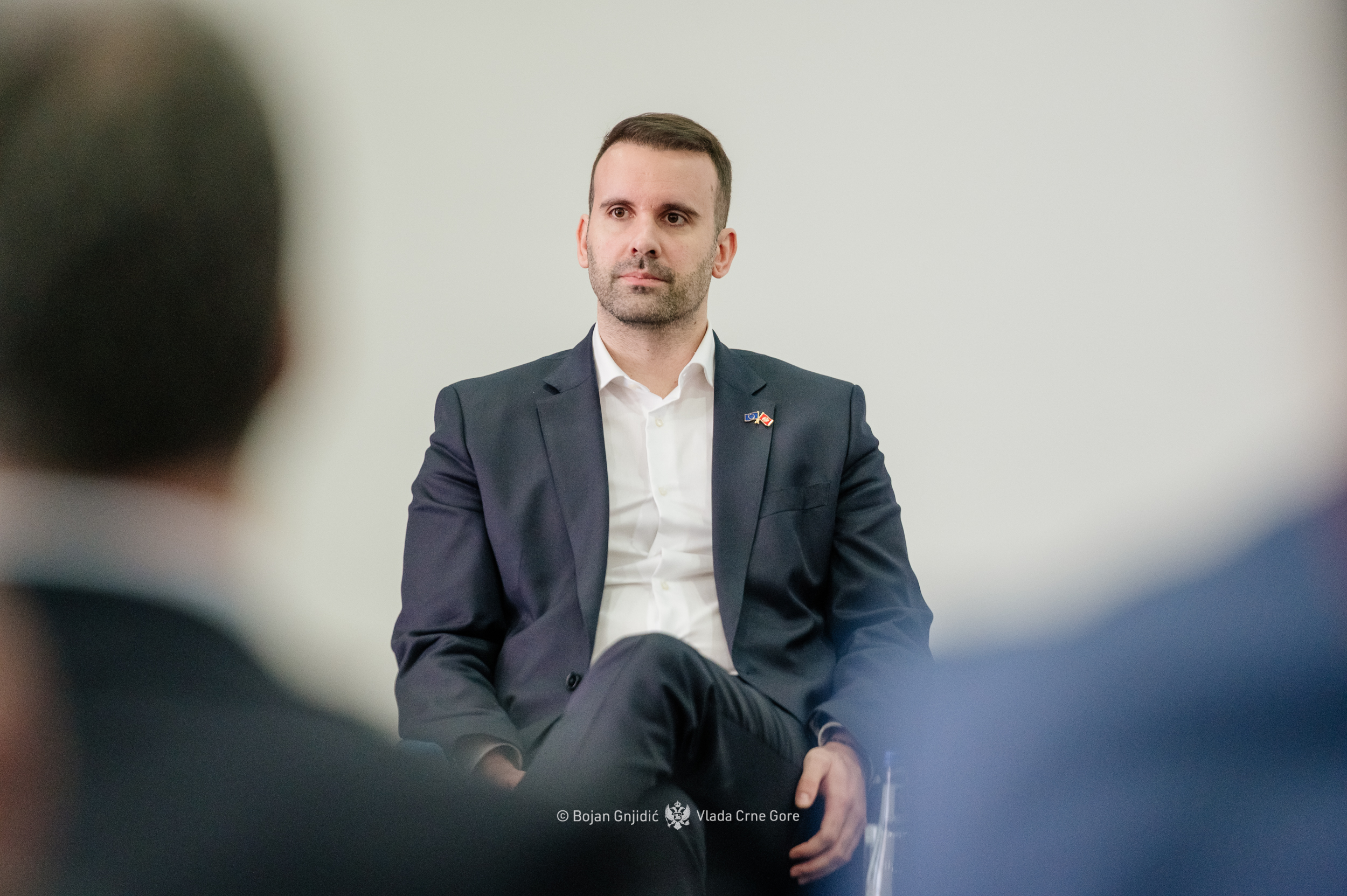
Prime Minister Milojko Spajic recently held a series of individual meetings with Montenegrin ambassadors—from Ukraine to Europe to the United States. Informal sources within the government say that during these meetings, the Prime Minister outlined a new geopolitical landscape shaped by Donald Trump’s return to power in the U.S. and evolving dynamics with the European Union
At the end of February, the Ministry of Foreign Affairs (MFA), led by Minister Ervin Ibrahimovic, summoned nearly all Montenegrin ambassadors stationed in Europe and the U.S. for urgent consultations, set to begin on March 6. The move sparked anxiety among some diplomats, who feared a repeat of the events of November 15, 2024, when three ambassadors were abruptly dismissed.
Monitor finds out that Spajić met separately with key diplomats, including Ukraine-based Borjanka Simicevic and U.S.-based Jovan Mirkovic. However, the concerns of mass dismissals proved unfounded. Instead, sources say the Prime Minister emphasized Montenegro’s continued commitment to the EU and instructed ambassadors to maintain a clear, pro-European stance. At the same time, he advised them against making any public criticisms of the United States or commenting on current rifts between the U.S. and its European allies.
Montenegro’s calibrated position became evident on March 11 at a meeting of top European military officials in Paris, where strategies for supporting Ukraine were discussed following Washington’s announcement of a suspension in military aid. The U.S. was not invited to the Parish meeting as the European leaders were keen to show they could step up independently if needed. Though an AP report initially stated that only Montenegro and Croatia, among NATO’s European members, failed to respond to the invitation, the Prime Minister’s Security and Defense Advisor, Todor Goranovic, told Radio Free Europe (RFE) that Montenegro would indeed participate. However, only the deputy military representative to NATO in Brussels attended because “Chief of General Staff Zoran Lazarevic was officially visiting Bulgaria at the time” – Goranovic explained.
Meanwhile, dissatisfaction is growing within Montenegro’s ruling coalition over Ambassador Mirkovic’s performance (or the lack thereof) in Washington. Tensions reportedly flared after a mid-February meeting with U.S. officials where he suggested that the fall of Serbian President Aleksandar Vucic could weaken some of his Montenegrin puppets. The details of the aforesaid meeting could not be independently confirmed. The subsequent report sent to Podgorica reportedly angered Spajic’s coalition partners from the former Democratic Front (DF). Although the DF was not directly mentioned in the report, its officials saw themselves as being referred to by the ambassador. One of them even retorted that those remarks would be a ground for the ambassador’s recall.
Discontent also emerged from the opposite ideological camp. Metropolitan Boris of the Montenegrin Orthodox Church (MOC) sent a protest letter to Minister Ibrahimovic, complaining that the embassy in Washington did not engage with the MOC delegation during their visit. The embassy, he wrote, failed to meet with them or assist in organizing meetings with U.S. officials. Furthermore, Metropolitan Boris complained that the embassy was “ignorant of some names and institutions that we wanted to reach out to”. He directly blamed the ambassador for the embassy’s dismissive stance.
As Monitor has previously reported, the embassy in Washington is increasingly out of sync with developments in the U.S. The once-prominent Montenegrin Caucus in Congress, which boasted 42 members under former ambassador Srdjan Darmanovic, has effectively dissolved. It’s now reduced to a single member—Congresswoman Chellie Pingree from Maine. Darmanovic had successfully lobbied to counter opposition to Montenegro’s NATO membership, despite concerns over ties of the Djukanović government with foreign criminal networks and Russian intelligence services.
Pingree reportedly sent multiple letters to the embassy criticizing the lack of engagement, but received no response. Monitor also reached out to her office twice for comment but had not received a reply at the time of publication.
Diplomatic affairs aren’t running smoothly in Europe either. In late January, the government approved the appointment of 14 new ambassadors. The list was coordinated with President Jakov Milatovic, whose signature is required for the appointments. Opposition parties and members of the pro-Serbian bloc raised objections, particularly over the inclusion of figures associated with the long-ruling Democratic Party of Socialists (DPS) and former foreign minister Milan Rocen.
One such appointee is Dragana Radulović, a longtime diplomat and former advisor to Prime Minister Dusko Markovic. She was posted to New York as Montenegro’s representative to the UN. She has been in diplomacy since 2000. Internal sources indicate that Veljko Milonjic initially hoped for the post in New York but was instead sent to Warsaw. Milonjic is remembered for his involvement in the so-called “cocaine affair” of 2015 when he was the head of Montenegro’s consulate in Munich. A truck from Munich carrying drugs under diplomatic seal was intercepted at the Austrian border. Though the Ministry of Foreign Affairs denied direct involvement, the incident cast a long shadow. Milonjic denied wrongdoing but was quietly recalled while the Consulate General in Munich was closed down. Milonjic was later appointed to a senior diplomatic post despite the scandal never being prosecuted. The truck driver, Sasha Mugosha, was sentenced to six years in prison. He was released after serving two and a half years and deported to Montenegro.
In March, the government announced that former German Bundestag member Holger Haibach had been appointed as a senior special advisor to Prime Minister Spajic, beginning January 1. Haibach will advise on regional relations in the Western Balkans and support EU accession efforts. His services will be funded by Germany’s Center for International Peace Operations (ZIF). While Haibach’s selection followed a public hiring process, sources in the diplomatic community question his current influence in Berlin. Haibach, a former CDU member of parliament, left office in 2011. Meanwhile, Veljko Kustrov, a Herzegovinian with close ties to Spajic, is considered his main point of contact in Germany.
Perhaps the most controversial diplomatic appointment so far is that of Dusanka Jeknic, a figure from the 1990s linked to the Djukanovic regime and repeatedly associated with cigarette smuggling. However, the Italian prosecutors could not present sufficient evidence against her in court. Jeknic was assigned to the embassy in Turkey after President Milatovic purchased property from her in Podgorica. Milatovic later claimed he had not been consulted on her appointment, stating that such decisions were under the MFA’s jurisdiction. He emphasized that his property purchase had been properly reported to Montenegro’s Agency for the Prevention of Corruption.
Previously, Milatovic had criticized the appointment of Predrag Drecun to lead Montenegro’s Investment Development Fund because of his close ties to the Djukanovic regime.
Montenegro is yet to drive a long and bumpy road before it gets a professional diplomatic network.
Jovo MARTINOVIĆ
Komentari
IN ENGLISH
TWILIGHT OF MONTENEGRIN INTERESTS IN AMERICA: Prayer Breakfast Instead of Real Diplomacy
Objavljeno prije
10 mjesecina
12 Aprila, 2025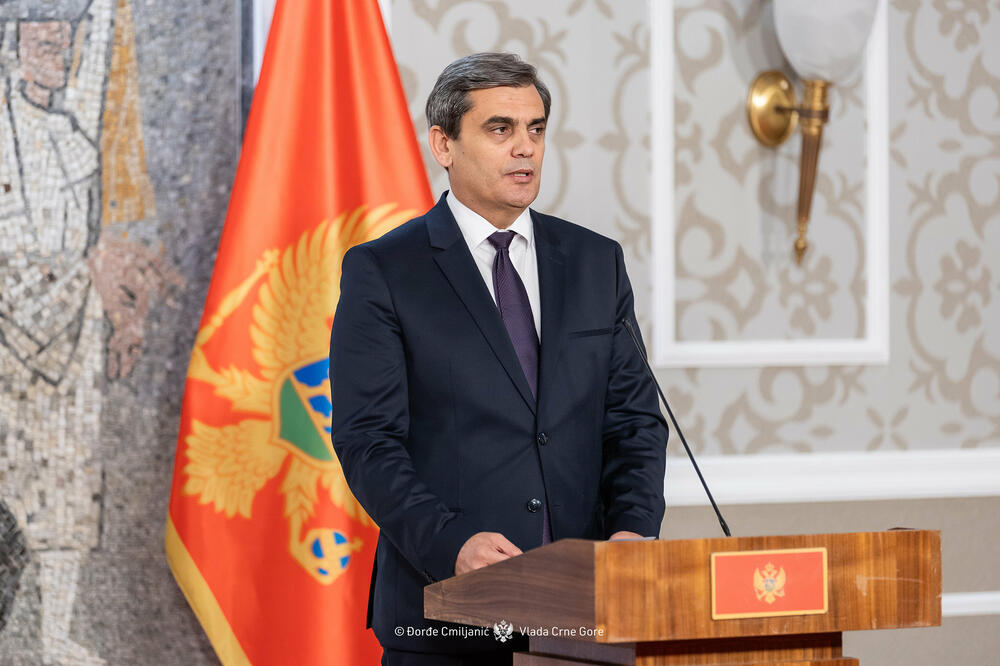
Aside from occasional trips and engagements with diaspora organizations, Montenegro shows little sign of having a coherent lobbying strategy in the United States. With the retirement of Congressman Doug Lamborn, the Montenegrin Congressional Caucus has dwindled to just one representative: Congresswoman Chellie Pingree from Maine
The 73rd annual National Prayer Breakfast in Washington recently took place, drawing more than three thousand leaders and prominent figures from politics and civil society from around the globe. Over the course of two days, participants had opportunities to network and exchange ideas at the Hilton Hotel, under the official patronage of the U.S. President.
Invitations were extended to a broad range of Montenegrin officials, including Prime Minister Milojko Spajic, Foreign Minister Ervin Ibrahimovic, Deputy Prime Minister for Economic Policy Nik Djeljoshaj, Minister of Urban Planning Slaven Radunovic, Minister of Transport Maja Vukicevic, and Minister for Human and Minority Rights Fatmir Djeka. Parliamentary invitees included many MPs, both from the opposition and the majority. Former President Milo Djukanovic and his close aide Branimir Gvozdenovic received invitations as well as several other ex officials. Also in attendance was Vijesti columnist and co-founder Zeljko Ivanovic—reportedly the only one whose travel wasn’t funded by taxpayers.
Branimir Gvozdenovic is often featured in pro-DPS (Democratic Party of Socialists) media as a regional liaison for the Prayer Breakfast. However, his name is absent from the official records of the event’s organizing foundation. Meanwhile, the Montenegrin delegation was accompanied by support staff including security, administrative personnel, and translators — necessary, since only Minister Vukicevic speaks fluent English. Translation was required for Djukanovic, Gvozdenovic and most MPs.
The cost of attending the Prayer Breakfast—including registration fees, three nights in a hotel, airfare, and daily allowances (currently €112 per day) — typically totals around $3,000 per person. When accompanying staff is added, the total bill reaches into the tens of thousands of euros. Out of the entire group, only Ministers Ibrahimović and Djeka were scheduled for official meetings at the U.S. State Department.
Minister for the Diaspora Adem Azemovic, representing the Bosniak Party, made his second trip to the U.S. in a month, accompanied by two associates. In late December, he met with Naser Nika, head of the Albanian-American Association of Staten Island. After the New Year he returned to meet him again. When asked why a second meeting was necessary, the Ministry explained that the first encounter had been brief, and the second was based on an official invitation. The association, which includes Albanian Montenegrins living in Staten Island, was praised for promoting Montenegro in New York.
Azemovic also visited the New York State Assembly, which is reportedly considering hosting Montenegro’s Independence Day celebration. His office described this as an opportunity to mark one of the country’s most significant holidays in a high-profile setting. Interestingly, Montenegro’s Independence Day was already celebrated at New York City Hall on May 23, 2024, in an event organized by the Albanian-American Association of Ulcinj. That celebration included Montenegro’s Consul Amer Cikotic and the Association’s president Dzelal Lanica. Nika had publicly criticized the event on Facebook, claiming that it misrepresented interethnic relations in Montenegro and highlighted Serbian political influence via Serbian President Vucic-backed factions.
Despite these diaspora engagements, there is little to suggest that Montenegro has any serious lobbying efforts in Washington—particularly with key decision-makers. Nebojsa Medojevic, leader of the Movement for Change (PZP), remarked that “Montenegro simply failed to grasp the magnitude and significance of political changes occurring in the U.S.”
“The current ambassador —Professor Jovan Mirković is openly anti-Trump and a personal ally of Aco and Milo Djukanovic” Medojević stated. “He has no meaningful contacts in Washington and no ideological alignment with the current direction of U.S. politics, so it’s unclear who or what he’s even representing.” He went on to question the competence and professionalism of the current government’s foreign policy team.
Interestingly, Nebojsa Todorovic, the former chargé d’affaires in Washington, had warned the Ministry of Foreign Affairs (MFA) and the government in late 2023 to prepare for a potential return of Donald Trump.
Since arriving in Washington in mid-September, Ambassador Mirkovic has maintained a notably low profile. His biography reveals he spent several years in Russia during the early 1990s—the same period when Milan Rocen was serving as minister-counselor at the Yugoslav embassy. Sources claim that Mirkovic has family ties in Russia and is known for his longstanding loyalty to the Djukanovic regime. Neither Djukanovic nor his Democratic Party of Socialists (DPS) have ever renounced their 2011 strategic cooperation agreement with Putin’s United Russia. In fact, the DPS publicly reaffirmed its pride in these ties in Parliament last year.
With the departure of Doug Lamborn—one of the Montenegrin Caucus’s co-chairs—the group now counts only a single member: Congresswoman Chellie Pingree. Meanwhile, Serbia has been actively growing its influence. Foreign Minister Marko Djuric, a former ambassador to Washington, has built up the Serbian Caucus to nearly 40 members. Djuric even boasted that Serbia, though not a NATO member, has stronger U.S. ties than Montenegro.
Some claim that Serbia pressured Podgorica through influential regional businessmen into sending a low-impact figure to Washington. The contrast with past Montenegrin diplomacy is stark: Under Ambassador Srdjan Darmanovic, the Montenegrin Caucus had grown to 42 members, surpassing even the Albanian caucus. Darmanovic worked closely with Congressman Mike Turner to gain U.S. support for NATO accession—despite Djukanovic’s regime then-notorious links to organized crime and Russian intelligence services.
Efforts to revive the caucus were briefly relaunched by Nebojsa Todorovic, who during his stint as chargé d’affaires in 2023 helped re-engage 10 U.S. lawmakers, including Turner and other influential committee chairs such as Michael McCaul and Robert Aderholt. For a brief period, Montenegro held a unique status in the Balkans, with three Congressional committee leaders in its caucus.
However, Todorovic has since been recalled, and with him, much of Montenegro’s presence in Washington has faded again into inertia.
This raises uncomfortable questions: Is Spajic’s government reverting to the old practice of conducting diplomacy through informal channels and business networks, as seen under Djukanovic and his top advisor Rocen? At the time, oligarchs like Oleg Deripaska and other Putin loyalists were reportedly enlisted to lobby for Montenegro in the West.
That line of approach came at a steep cost to the country—and its reputation.
Jovo MARTINOVIĆ
Komentari
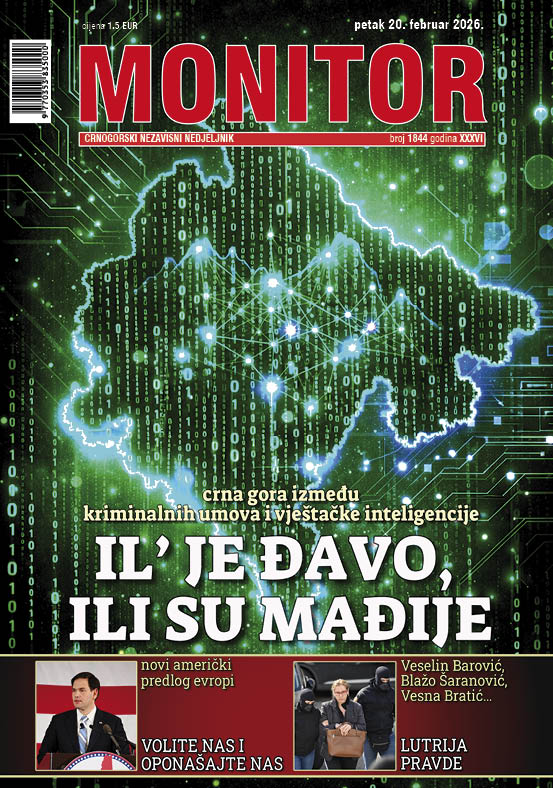


VESKO BAROVIĆ, VESNA BRATIĆ, BLAŽO ŠARANOVIĆ…: Lutrija pravde

CRNA GORA IZMEĐU KRIMINALNIH UMOVA I VJEŠTAČKE INTELIGENCIJE: Il’ je đavo, ili su mađije

MISTERIJA KORITA ĆEHOTINE: Rijeka za potkusurivanje
Izdvajamo
-
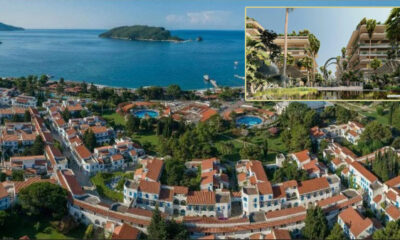
 DRUŠTVO4 sedmice
DRUŠTVO4 sedmicePONUDA MK GRUPE O GRADNJI NA SLOVENSKOJ PLAŽI NA ČEKANJU: Odluka vlade poslije izbora 2027. godine?
-
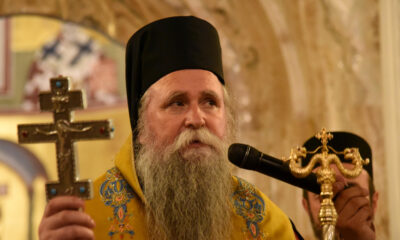
 DRUŠTVO4 sedmice
DRUŠTVO4 sedmiceMITROPOLIJA TRAŽI INSTITUT ZA RATNE ZLOČINE: Njihova istorija
-
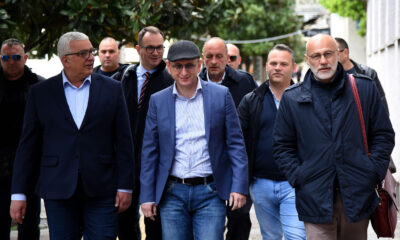
 DRUŠTVO4 sedmice
DRUŠTVO4 sedmiceOSTAVKA SUTKINJE VESNE MOŠTROKOL: Državni udar na početak?
-
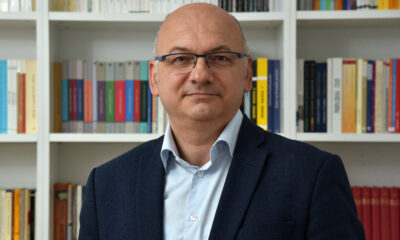
 INTERVJU4 sedmice
INTERVJU4 sedmiceDR DEJAN JOVIĆ, PROFESOR MEĐUNARODNIH ODNOSA I BEZBJEDNOSNIH STUDIJA-FAKULTETA POLITIČKIH ZNANOSTI SVEUČILIŠTA U ZAGREBU: Narcisoidni lideri svete se za eru demokratije
-

 Izdvojeno3 sedmice
Izdvojeno3 sedmiceSAVREMENA TEHNOLOGIJA I SREDNJOVJEKOVNA SVIJEST: Lovci na privatnost
-
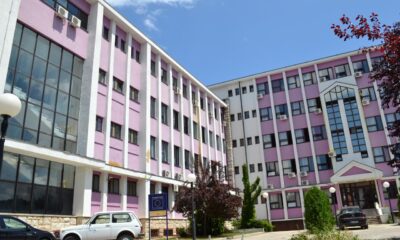
 Izdvojeno3 sedmice
Izdvojeno3 sedmiceELEKTROPRIVEDA CRNE GORE I POLITIKA: Nova vlast i stari modeli
-

 Izdvojeno2 sedmice
Izdvojeno2 sedmiceDOMAĆI SNIMCI, EPSTINOVI FAJLOVI I DRUGE PRIČE: Opasno oružje
-
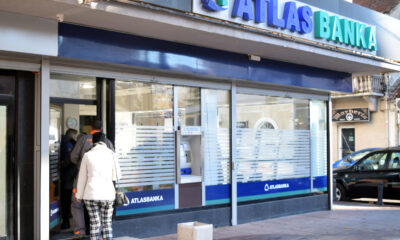
 Izdvojeno3 sedmice
Izdvojeno3 sedmiceZATVORENO POGLAVLJE 32 – FINANSIJSKI NADZOR: Tokovi (prljavog) novca tek dolaze na red






